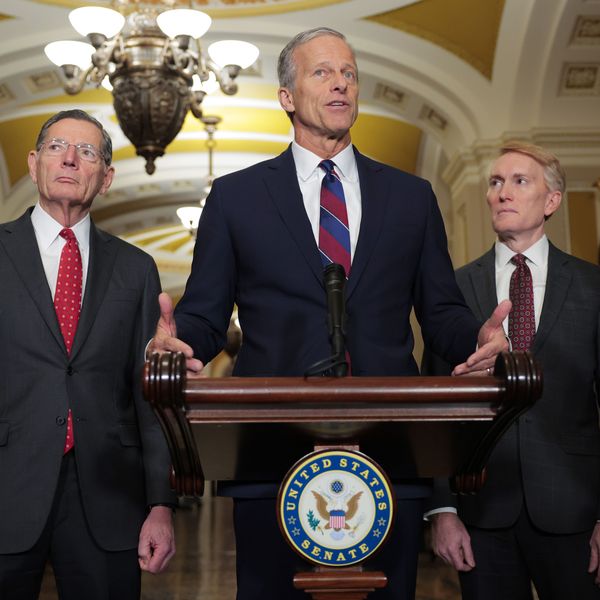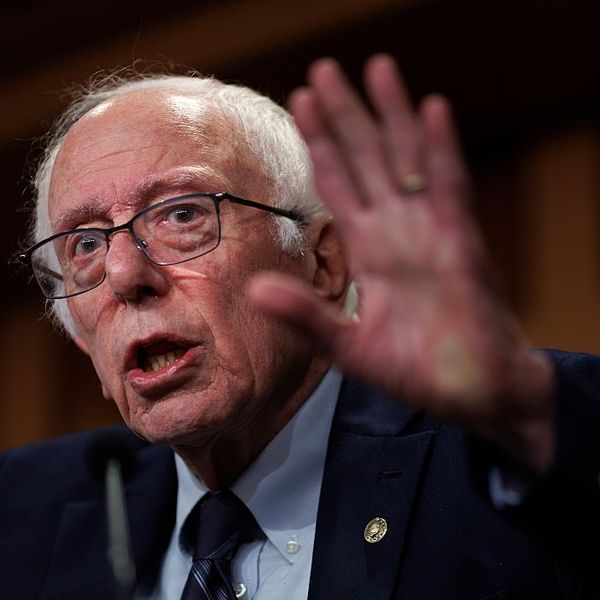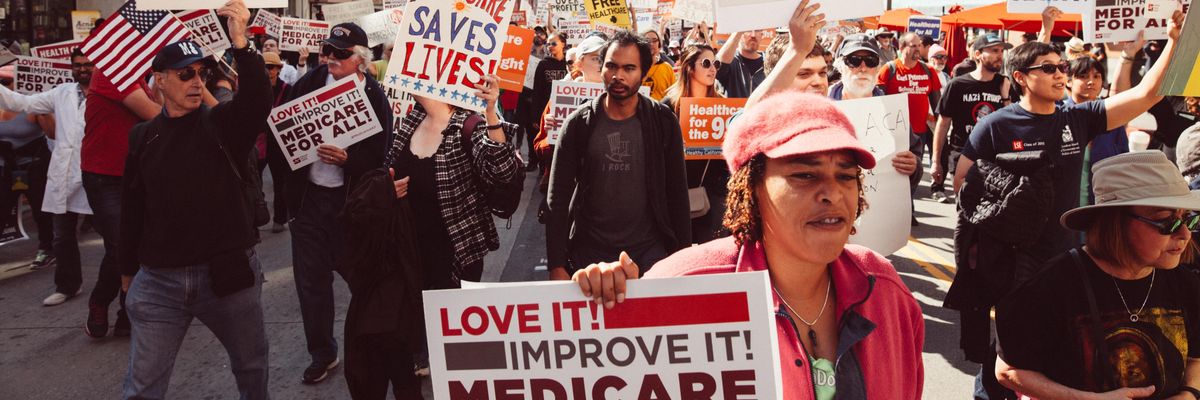As progressives gear up for a National Day of Action to protest the Republican healthcare bill, more evidence is piling in that Americans don't approve of the Senate plan to repeal and replace the the Affordable Care Act, also called Obamacare.
A new poll by NPR/Marist finds that just 17 percent of Americans approve of the Better Care Reconciliation Act (BRCA), also known as Trumpcare, while more than half disapprove.
Among Republicans who were surveyed, just 35 percent supported the bill while 21 percent opposed it. Sixty-eight percent of independents disapproved of the plan. The poll was taken even before the Congressional Budget Office (CBO) released its analysis showing that the plan would take away health coverage for 22 million Americans over the next decade.
Americans' opinions on the BRCA mirror the Republican leadership's difficulty in moving forward with the bill. On Tuesday, Majority Leader Mitch McConnell was forced to delay a vote on the bill.
Following the CBO's announcement, so-called moderate Republican Sen. Susan Collins of Maine said she would not back the bill, while a number of conservatives including Rand Paul of Kentucky and Ted Cruz of Texas also confirmed their opposition.
The poll numbers and the vote delay may be encouraging to progressives who have been disconcerted by the bill's cuts to Medicaid, coverage for older Americans, and other services. However, activists aren't slowing down in their efforts to put pressure on legislators to block the bill when it does go to a vote after the week-long July 4 recess.
The national community organizing group People's Action notes that ramping up anti-BRCA actions in the coming days is especially important as the GOP leadership attempts to sway moderate senators such as Collins and Shelley Moore Capito of West Virginia, doling out funds to states that need them for Medicaid and opioid crisis-spending.
"We can't let these bribes provide cover for a bill that will lead to tens of thousands of deaths," writes Sarah Chaisson-Warner of People's Action. "That means amping up the pressure we've been building in recent weeks In the face of a secretive, undemocratic legislative process in the Senate."
The group called for the National Day of Action on Wednesday to stop the Republican effort to pass the bill. Rallies will take place across the country, and protesters are planning sit-ins at the Senate offices of Mike Crapo of Utah and Ron Johnson of Wisconsin.
Wednesday's protests will be just the latest action by the energized anti-Trump resistance. Planned Parenthood and MoveOn.org are two groups that have participated in the People's Filibuster to Stop Trumpcare this week. Senate Democrats joined dozens of protesters on Capitol Hill Tuesday to voice concerns about the BRCA, while groups like the Maine People's Alliance sent messages in pill bottles to Susan Collins, and the Iowa Citizens for Community Improvement assembled at the Senate offices of Joni Ernst and Chuck Grassley, to talk about how the bill would impact their healthcare.



